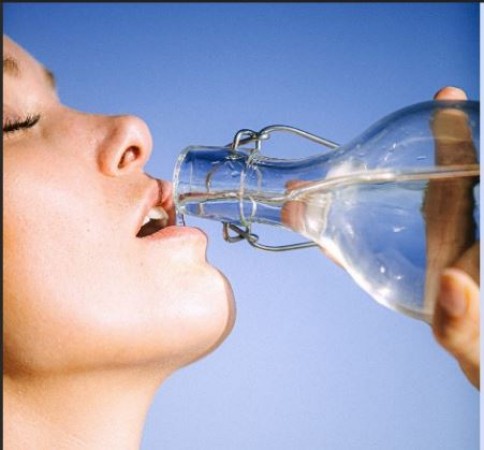
In today's health-conscious world, understanding the intricate relationship between water intake and cholesterol levels is paramount. Many individuals worry that excessive water consumption may lead to an increase in unhealthy cholesterol in the body. In this comprehensive exploration, we will delve into the various facets of this topic, debunk myths, and provide valuable insights to help you make informed decisions about your health.
Before we delve into the connection between water and cholesterol, let's grasp the fundamentals. Cholesterol is a waxy, fat-like substance found in every cell of our body. It plays an indispensable role in building cell membranes, producing hormones, and aiding in the digestion of fats.
To understand how cholesterol levels can be influenced by factors like water intake, it's essential to differentiate between two primary types of cholesterol: LDL (Low-Density Lipoprotein) and HDL (High-Density Lipoprotein). LDL cholesterol is often dubbed "bad" cholesterol because excessive levels can lead to plaque buildup in arteries, elevating the risk of heart disease. Conversely, HDL cholesterol is deemed "good" cholesterol as it actively helps remove LDL cholesterol from the bloodstream.
Water is often referred to as the elixir of life, and for a good reason. Staying adequately hydrated is crucial for overall health. It assists in regulating body temperature, flushing out toxins, and supporting various bodily functions. But can something as fundamental as drinking water have any bearing on cholesterol levels?
Contrary to popular belief, there is no scientific evidence to support the notion that excessive water consumption can raise LDL cholesterol levels. In fact, staying hydrated can have several positive effects on heart health, as we'll explore below.
One of the ways in which water may indirectly influence cholesterol levels is by boosting metabolism. A well-hydrated body can efficiently process lipids, the fats present in our bloodstream, and prevent the accumulation of excess cholesterol. Think of water as the lubricant that keeps your metabolic engine running smoothly.
It's not uncommon for our bodies to confuse thirst with hunger, leading to overeating. By staying hydrated, you can better differentiate between the two sensations, which can help control your appetite and subsequently make healthier food choices. This indirect impact on dietary choices can play a pivotal role in managing cholesterol levels.
Maintaining a healthy weight is a key factor in managing cholesterol levels. Drinking water can be a valuable asset in your weight management journey. It promotes a feeling of fullness, which can curb the impulse to snack on unhealthy foods. Additionally, water supports digestion, ensuring that the nutrients from your meals are absorbed effectively.
While the question of water's influence on cholesterol levels has been addressed, it's important to recognize that when it comes to high cholesterol levels, the primary culprits are often related to our dietary choices and lifestyle.
Diets rich in saturated and trans fats are known to significantly raise LDL cholesterol levels. These unhealthy fats are commonly found in processed and fried foods. To maintain healthy cholesterol levels, it's crucial to minimize the consumption of such foods and opt for healthier alternatives.
Inactivity and a sedentary lifestyle can contribute to elevated cholesterol levels. Regular physical activity not only boosts HDL (good) cholesterol but also lowers LDL (bad) cholesterol. Incorporating exercise into your daily routine is a powerful tool for maintaining overall heart health.
Now that we've debunked the myth of water negatively impacting cholesterol levels and highlighted the real culprits, here are actionable tips to help you achieve and maintain healthy cholesterol levels:
A diet rich in fruits, vegetables, whole grains, and lean proteins can significantly contribute to healthier cholesterol levels. These foods provide essential nutrients and fiber that help regulate cholesterol.
Regular exercise is a cornerstone of heart health. Aim for at least 150 minutes of moderate-intensity exercise or 75 minutes of vigorous-intensity exercise per week to improve your cholesterol profile.
Excessive alcohol intake can indeed increase cholesterol levels and harm your heart. If you choose to consume alcohol, do so in moderation, adhering to recommended limits.
We've established that staying hydrated is beneficial for overall health. Drink an adequate amount of water throughout the day to support not only your metabolism but also your well-being.
Consult with your healthcare provider for cholesterol screenings and personalized guidance. Regular check-ups are essential for monitoring your cholesterol levels and addressing any concerns promptly.
In conclusion, the notion that drinking water can increase unhealthy cholesterol levels is a myth without scientific basis. Staying hydrated is essential for overall health and can indirectly contribute to maintaining healthy cholesterol levels by supporting metabolism, appetite control, and weight management. However, when it comes to cholesterol management, the real culprits are dietary choices and lifestyle factors. By adopting a balanced diet, staying physically active, moderating alcohol consumption, prioritizing hydration, and scheduling regular check-ups with your healthcare provider, you can take proactive steps to ensure your heart remains healthy. Remember, achieving and maintaining healthy cholesterol levels is not about avoiding water but rather making informed choices in your daily life that promote heart health.
There are many festivals and holidays in October, why not plan for these places around Delhi
'Flash Forward' and Its Transformation into 'Action Replayy'
How 'Action Replay' Missed the Mark on Indianizing 'Back to the Future'